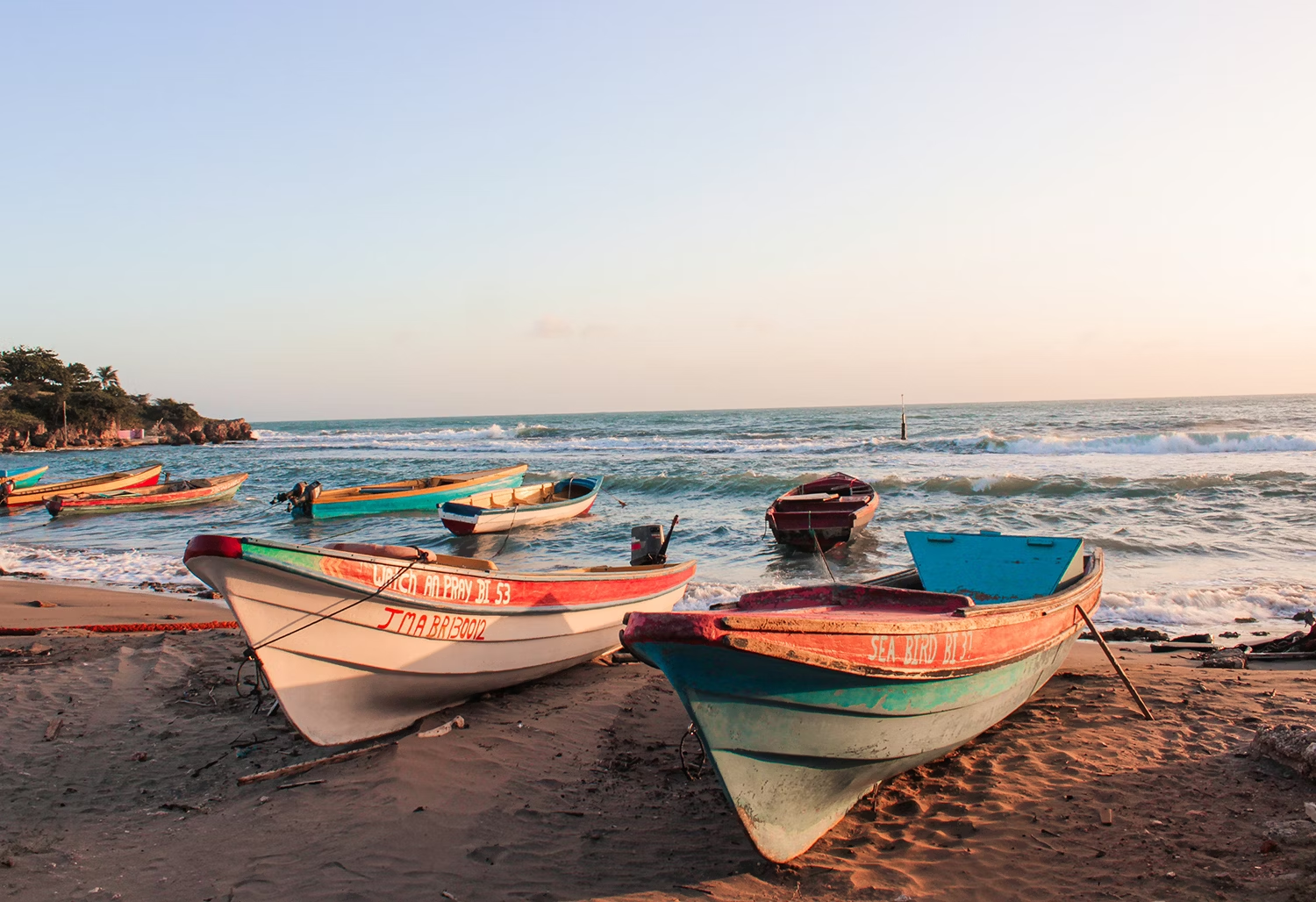 Photo by Caspar Rae on Unsplash
Photo by Caspar Rae on UnsplashIS IT SAFE TO TRAVEL TO JAMAICA IN 2026?
The last time you heard something about Jamaica in a travel context, it probably had to do with the 2025 hurricane that devastated much of the island – and you may legitimately be wondering whether it’s safe to travel to Jamaica.
It’s a complex question, exacerbated by crime and other issues.
For most travelers heading to Jamaica in the spring of 2026 or later, the answer on Jamaica’s safety would have to be yes, it’s a safe destination. And we’ll walk you through the steps you need to take to make it so.
Jamaica Travel Safety: What You Need To Know
Here are the most important things to know about Jamaica’s travel safety:
- Hurricane Melissa caused extensive damage on Jamaica’s south coast, but recovery is moving quickly.
- Areas with high crime rates – including violent crime – exist but can be easily avoided.
- Jamaica's marijuana laws are not as permissive as many people think. Fines and imprisonment can result from possession of marijuana or similar drugs.
- Avoid driving in Jamaica or taking mass transit.
- Choose your destination and resort carefully. Read impartial reviews and closely examine maps.
- At resorts, stick close to the resort and keep a low profile. Don’t venture out alone at night.
- Use a money belt, infinity scarf or hidden pouch to keep money and valuables.
Hurricane Melissa Update
Hurricane Melissa caused extensive damage on Jamaica’s south coast – not the center of the country’s tourism industry, but an area with many resorts. The Black River and Montego Bay areas are still considered to be in recovery.
Some airports have reopened (most notably Norman Manley International), but other airports remain closed. You should contact airlines before flying to Jamaica, and give yourself plenty of time to reach the airport when leaving Jamaica.
Tourist areas and resorts are aggressively undertaking recovery efforts – and in some cases, using the hurricane to update facilities.
According to Sandals Resorts International Executive Chairman Adam Stewart, many resorts should be open by January 2026.
Philip Rose, deputy director of tourism for the Jamaica Tourist Board, adds, "Many attractions are there waiting to welcome visitors right now.”
Jamaica Travel Safety By The Numbers
Let’s examine how Jamaica rates by the safety numbers.
- GeoSure Global, which tracks the safety of various world cities on a neighborhood-by-neighborhood basis, gives Kingston, the country’s capital, scores ranging from 25 (theft) to 69 (health and safety) out of 100.
- The rankings from Numbeo, place Jamaica 140th out of 148 countries.
- The Global Peace Index, a multivariate measure, puts Jamaica 93rd out of 163 countries, calling out its homicide and violent-crime rates.
- Similarly, the Global Finance ratings of safest countries have Jamaica 110th out of 134, just below its Caribbean neighbors Trinidad and Tobago but also behind Russia and Turkey.
- Berkshire Hathaway Travel Protection has included Jamaica in its Safest Places ratings every year since their inception. The country came in 37th out of 42 countries in 2025 after ranking as high as 15th out of 35 in 2018.
- Finally, the U.S. State Department has Jamaica as a level-3 (“Reconsider Travel”) country, mostly because of crime – which we’ll get to shortly.
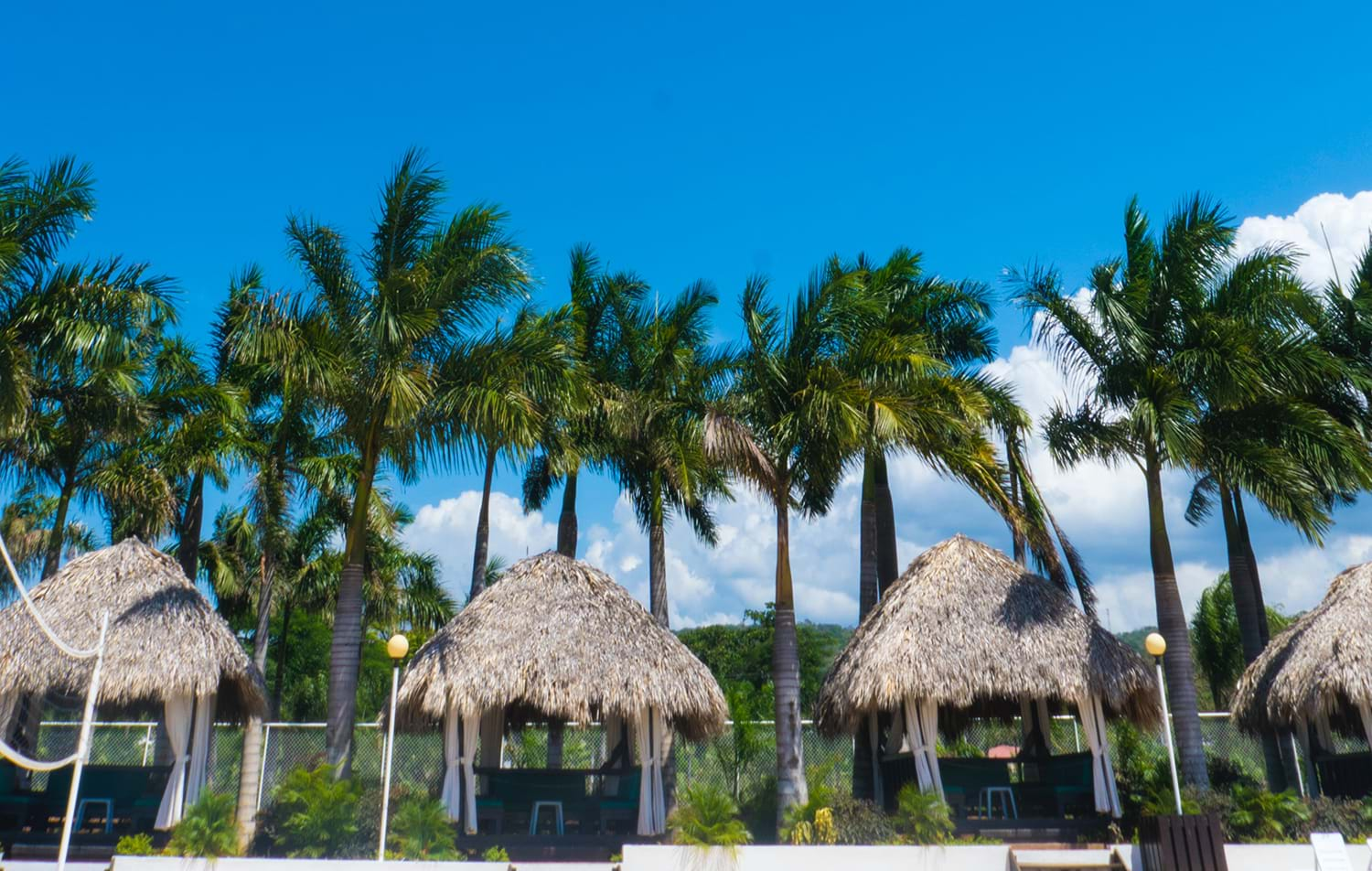 Photo by Patrick Superior on Unsplash
Photo by Patrick Superior on Unsplash
Jamaica Travel Safety: Areas For Concern
High-crime areas
Let’s start with crime. Jamaica has some of the highest rates of violent crime and homicides in the Western Hemisphere.
That’s the bad news. The good news is that crime is largely contained to specific cities and neighborhoods in Montego Bay and Kingston where tourists rarely visit – and if you don’t go there you don’t become a victim.
While Jamaica’s cities may appeal to adventurers, the truth is few people go to Jamaica to explore its cities. They go for the beaches, the water, the resorts, and the scenery.
For backpackers and others looking to plumb the depths of Jamaica’s cities, paying special attention to safe streets and neighborhoods is a good idea. For the bulk of tourists, however, this information is helpful but not necessarily germane to their Jamaican vacation.
Violent crime
What is germane is that home invasions, armed robberies and sexual assaults can happen even during daylight in tourist areas and at resorts, according to the State Department.
In addition, the police may lack the resources and training to respond effectively and appropriately to victims of violent crime.
Finally, emergency services vary in quality across the country, with response times that are generally slower than U.S. standards.
Sexual-assault victims may not be treated with speed or compassion, and should be aware that:
- Law enforcement may not be quick or diligent about collecting evidence
- Prosecution of rape cases proceeds slowly
- Victims may need to return to Jamaica for the trial
Victims should contact the police and the U.S. Embassy in Kingston as soon as possible.
Alcohol is often a factor in sexual assaults. Even at resorts, tourists need to drink in moderation and watch their drinks at all times.
Jamaica is also not particularly LGBTQ+-friendly. Same-sex relations are outlawed, and public displays of affection may result in harassment, assault, blackmail, arbitrary detention, and more.
Same-sex couples can visit Jamaica and have a great time. They just need to be discreet in public.
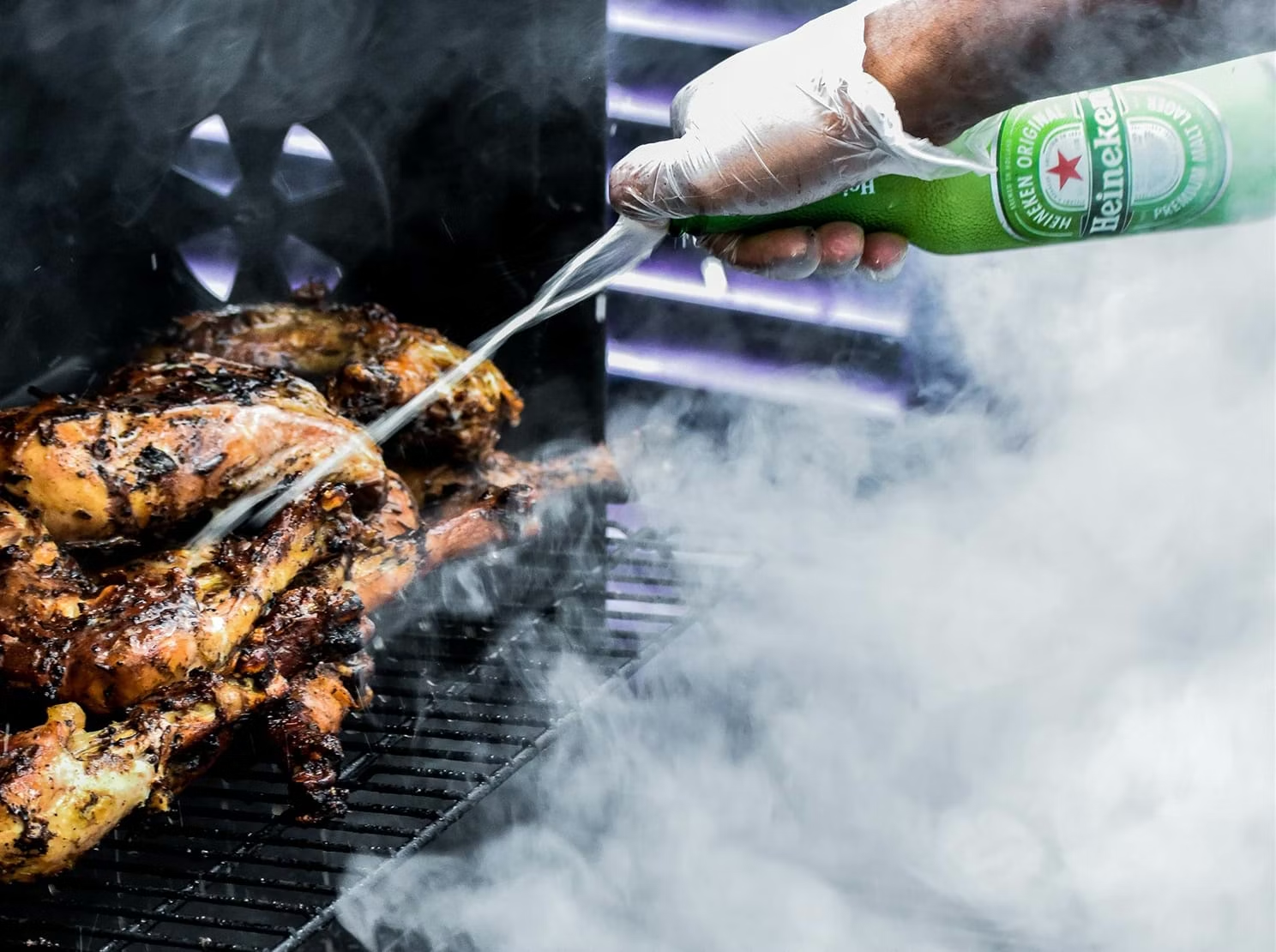 Photo by S kelly on Unsplash
Photo by S kelly on Unsplash
Scams
While online romance and financial scams can be found in Jamaica, the most popular scam in Jamaica is the lottery scam, which promises victims a lottery prize after they pay “fees.”
The State Department recommends that anyone targeted by one of these scams should just ignore the calls and emails.
People being targeted by other scams should contact the U.S. Embassy and report crimes to the local police.
Drugs
While many travelers associate Jamaica with marijuana culture, tourists can wind up in severe legal trouble if they’re not aware of the country’s drug laws.
Marijuana has been decriminalized in Jamaica, and possession of small amounts may only result in a fine.
However, possession of larger quantities, or attempting to leave the country with marijuana, may result in arrest and prosecution.
Possession of other drugs may also result in arrest and prosecution.
The tourism industry
The State Department notes that, “The tourism industry is unevenly regulated,” which can mean:
- Hazardous areas – like unsafe beaches – aren't identified
- Unsafe activities (i.e., jumping off of cliffs into shallow water) aren't prohibited by signs
- Staff may not be adequately trained
- Equipment like boats or jet skis may not be regularly inspected
- Appropriate medical treatment is only available near major cities
Resorts have taken many of these issues into their own hands. If you confine your heavy-duty swimming to resort pools and lifeguarded beaches, you should be just fine. However, tourists shouldn’t be surprised by inconsistencies during their time in the country.
Driving
Driving in Jamaica is best left to the natives and the experts. You can expect that:
- Most streets will lack lane markings
- Heavy rains will make washouts common, especially in the countryside
- Pedestrians and animals will expect to share the road with vehicles
- Emergency services will be slow
- Rental cars may be susceptible to carjackings
- Driving at night will be life-threatening
Also remember: Jamaicans drive on the left side of the road by design.
Other transportation
If you’re looking to travel somewhere by motor vehicle, your best bet is a taxi. Take only licensed taxis, which can be identified by their red license plates.
Buses in Jamaica can be crowded and frequented by pickpockets. The State Department has prohibited its employees from taking Jamaican buses – good advice for any American visitors to the country.
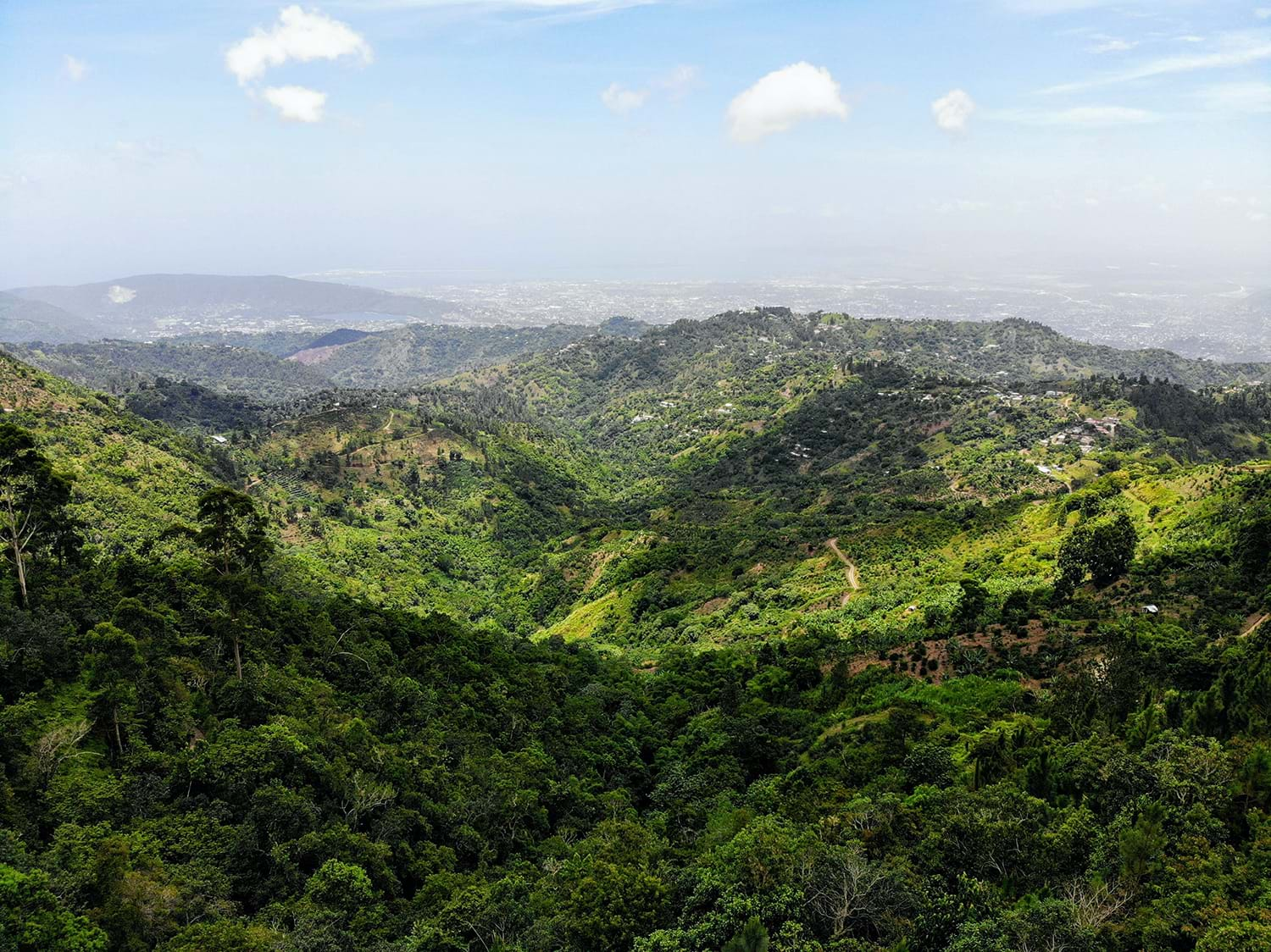 Photo by Yves Alarie on Unsplash
Photo by Yves Alarie on Unsplash
Diseases and medical care
Dengue, HIV and Zika are still present in Jamaica, but are not considered widespread. The threat of COVID-19 is greatly diminished, though proof of a negative test is still required to enter the country.
While there are pharmacies in Jamaica, they may not be able to fill many prescriptions – and EpiPens are totally unavailable.
People traveling with prescriptions should clear them with the Jamaican government before entering the country and should always carry prescription meds in their original containers with the prescription attached.
Medical care is generally available in developed areas, though not of the quality Americans may be used to. Private facilities require upfront cash payment, making emergency medical insurance (such as that offered by Berkshire Hathaway Travel Protection) a must.
Older travelers should remember that Medicare does not cover any medical expenses incurred in Jamaica.
Weather
Jamaica isn’t immune from hurricanes, with the hurricane season generally running from June to November.
However, if you have a summer wedding or are planning a Jamaican honeymoon or family vacation, keep an eye on the weather (NOAA’s Global Tropics Hazards Outlook is recommended) and consider travel insurance to protect your prepaid expenses.
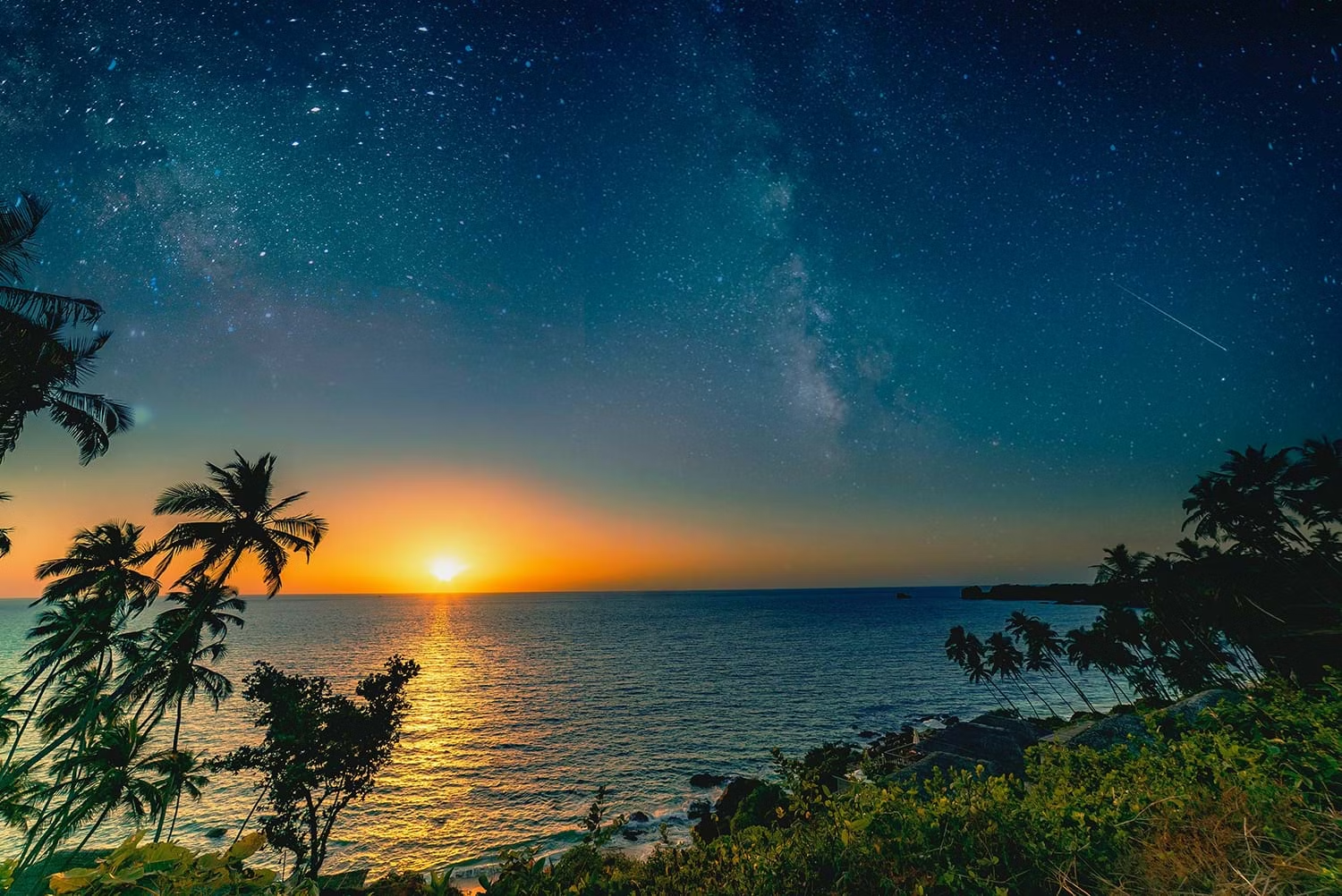 Photo by Ashutosh Saraswat on Unsplash
Photo by Ashutosh Saraswat on Unsplash
Staying Safe In Jamaica: What Travelers Should Do
This seems like a lot, but we have to keep emphasizing that most travelers will not notice or be affected by most of these issues.
With that said, keeping your antennae up is always a good idea. In addition, it’s important to:
- Choose your destination carefully
- Stick close to the resort
- Drink in moderation
- Keep a low profile
- Protect your money and valuables
- Be water-smart
- Buy travel insurance with emergency medical protection
1. Choose your destination carefully
Most American travelers to Jamaica stay at a resort or vacation rental around Ocho Rios or Negril. These are relatively safe destinations with a well-developed infrastructure that caters to tourists.
However, given Jamaica’s issues, it’s prudent to work with a travel advisor who knows Jamaica and can recommend the best resort for your vacation style, and/or vacation rentals that meet your requirements.
Speaking with friends who have been to Jamaica and searching reviews and impartial reports online are a good way to supplement an advisor’s recommendations. Trust, but verify.
2. Stick close to the resort
Many of the issues travelers encounter in Jamaica involve leaving the resort grounds, often at night and under the influence of alcohol.
Specifically, the State Department recommends that you:
- Avoid secluded places or situations, even at resorts
- Always be accompanied by someone you know, even when going to the restroom
- Don't leave food or drink unattended
- Don’t leave the resort with someone you’ve just met
- Shout for help immediately if you feel threatened or uncomfortable
Jamaica’s resorts are generally safe, beautiful places that have everything you need to have a great vacation. If you plan a resort vacation, it makes sense to stay on the resort grounds – especially at night, or when alcohol might be involved.
3. Drink in moderation
All-inclusive resorts in particular encourage hedonistic behavior. Drinking excess is not uncommon.
Since many incidents occur when people have been drinking too much, try to drink in moderation. Have a good time but keep your wits about you.
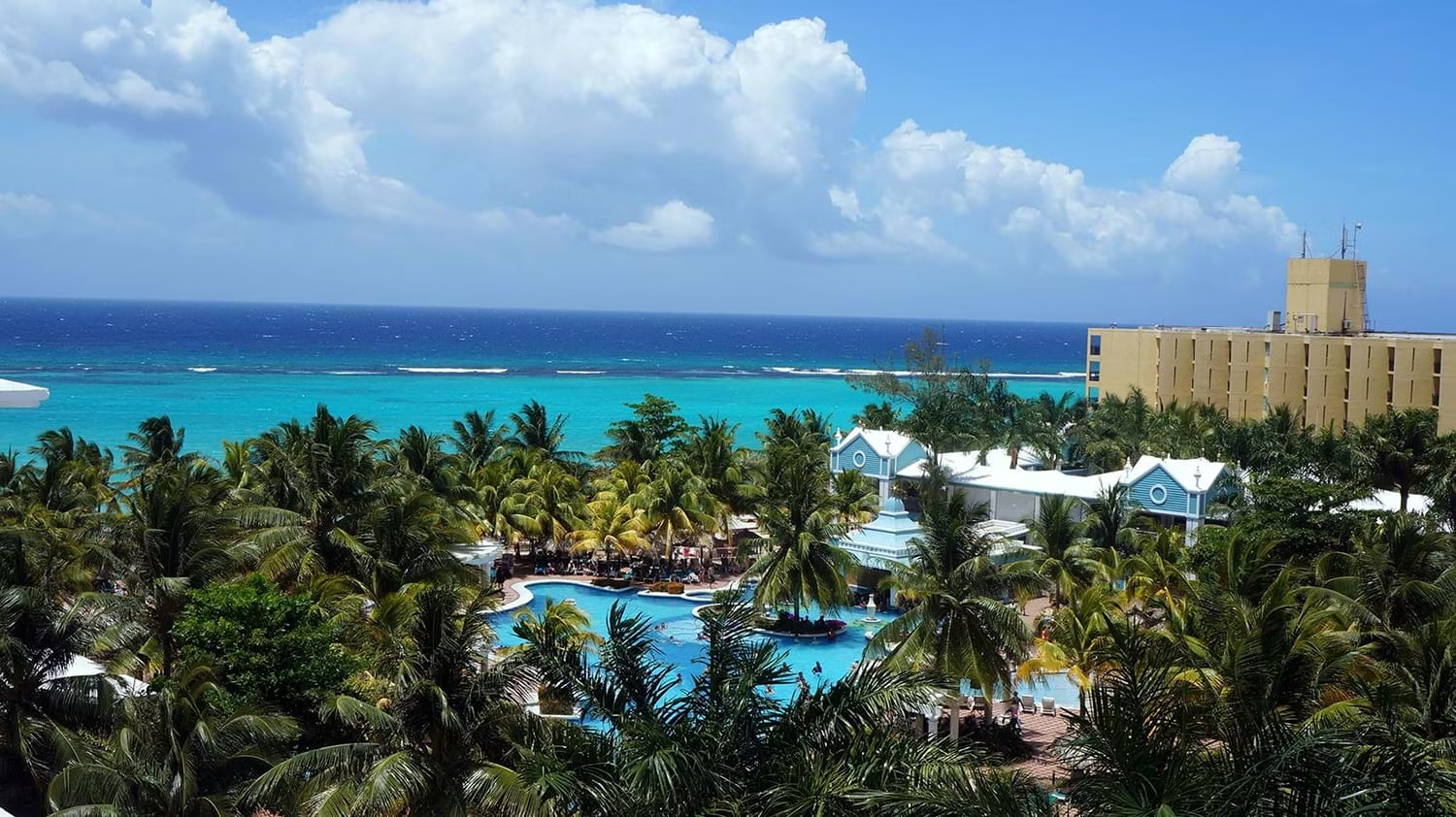 Photo by Staicy Androose on Unsplash
Photo by Staicy Androose on Unsplash
4. Keep a low profile
Flashy jewelry and clothing attract thieves and pickpockets. Dress simply and keep the flash to a minimum. When approached by scammers or people offering you items for sale, decline firmly but politely and keep moving.
In addition, always be aware of your surroundings. If you do find yourself the victim of a robbery, don’t resist. Comply with the thieves and promptly report the incident to local police and the U.S. Embassy.
5. Be water-smart
Rip currents are common. If you do go into the water at a beach, stick close to shore and swim parallel to the shore.
6. Protect your money and valuables
Spread around your valuables, credit cards, and money. Use a money belt, pouched socks, or other valuables-concealing clothing to hide money and credit cards.
At the hotel, keep multiple copies of your passport in different locations, and consider using a portable safe to stow valuables in your hotel room.
7. Get travel insurance with emergency medical protection
The combination of rugged terrain, severe weather, crime, and disease risks means that medical emergencies are a real possibility in Jamaica.
Your standard health plan probably isn’t going to help much if you get sick in Jamaica. To protect yourself properly, choose a travel insurance plan with emergency medical insurance – the more the better.
ExactCare Extra® offers up to $75,000 in emergency medical coverage and LuxuryCare® has up to $150,000 in emergency medical coverage, making either perfect for a trip to Jamaica.
Jamaica Travel Safety: The Bottom Line
Jamaica is popular with vacationers, honeymooners, and singles for many reasons: It’s a beautiful country with many well-developed resort areas that can cater to just about every kind of traveler.
Have a great time on your Jamaican vacation! Just be careful.
Questions About Travel Insurance?
Check out our online guide, "What Is Travel Insurance All About?" We've provided in-depth answers to all your travel insurance questions, starting with the basics.